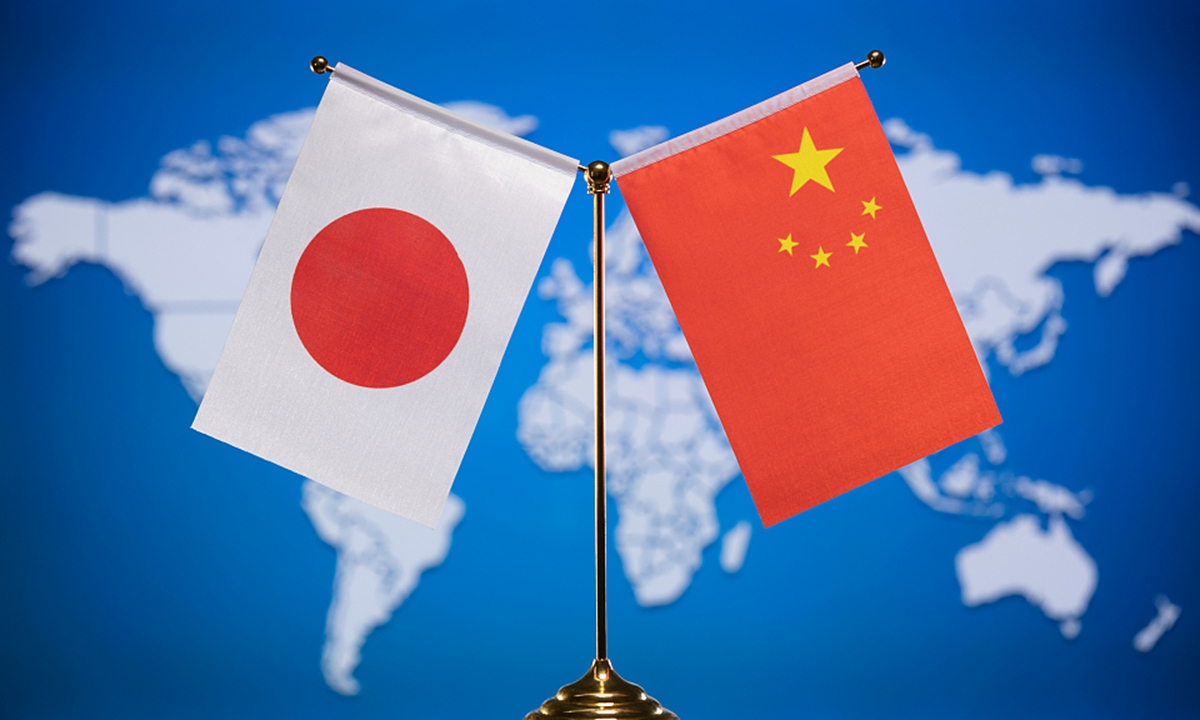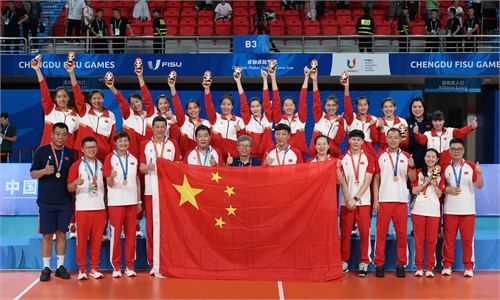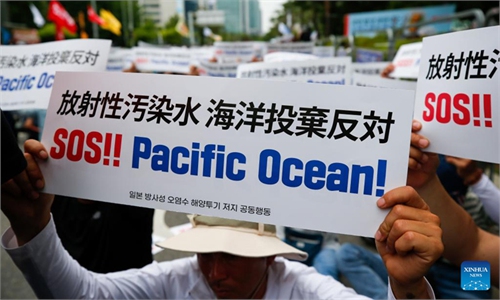Japan's gestures to China – real desire to reconcile or just for show?: Global Times editorial

China-Japan Photo: VCG
China's Ministry of Culture and Tourism on Thursday announced a third round of resumption of outbound group tour services to 78 countries and regions, and some observant Japanese media noticed their country's name was on the list. This was captured by the Japanese public opinion as a rare positive aspect of the relationship between China and Japan and received media coverage. In fact, the Japanese side appears to be very sensitive whenever the Chinese side adjusts its policies on visas, tourism and other areas. From this, it is not difficult to see Japan's attention and expectations for Chinese tourists.Chinese tourists once accounted for 30 percent of overseas tourists visiting Japan. Due to the direct impact of the COVID-19 pandemic, the number has sharply declined. As the pandemic's influence has subsided, many countries, including Japan, are stepping up efforts to attract foreign tourists. China didn't resume outbound group tour services to Japan in the first two rounds, which can be attributed to complex factors beyond the epidemic. And it is also a reflection of the reality of the dilemma of China-Japan relations. Japan's tourism industry certainly hopes for an increase in Chinese tourists and Japanese society is also looking forward to the easing of China-Japanese relations - or, in other words, it has a stronger worry that China and Japan will move toward confrontation. We can clearly feel this from the Japanese public opinion.
The Japanese government should have sensed it and taken action as well. It's reported by Japanese media on Wednesday that during the ASEAN series of meetings held in September, it is possible for a high-level leadership meeting between China and Japan, and China has a "positive attitude" toward this. This news has not been confirmed by China so far, but Japanese media claims that China-Japanese relations have been further damaged recently due to Japan's planned dumping of nuclear-contaminated water into the sea, and Tokyo has been seeking to improve bilateral relations with Beijing.
In addition, it's reported Fumio Kishida will also entrust Natsuo Yamaguchi, the leader of the Komeito Party, who will visit China later this month, to deliver his handwritten letter to the Chinese leader. This year marks the 45th anniversary of the signing of the Treaty of Peace and Friendship Between the People's Republic of China and Japan. Relationship between China and Japan faces significant challenges currently, necessitating the enhancement of high-level dialogue between the two nations. These two pieces of news on Wednesday have given those concerned about China-Japanese relations a glimpse of the possibility of a turnaround.
To be honest, though, the harm done by Japan's conduct over the past two years to China-Japan relations, particularly the damage to mutual trust, is too severe. Making what seem to be conciliatory gestures by the Japanese government is ineffective. The key is to fundamentally adjust its wrong policies toward China, especially actions that violate the four political documents between China and Japan. Otherwise, we can only understand these gestures as mere displays for the domestic or international community, rather than genuine willingness and sincerity to promote the return of China-Japanese relations to the right track.
What are the difficulties in China-Japan relations? Tokyo knows this well. For example, Japan's interference in the Taiwan question and its attempt to lead the way for "NATO" into the Asia-Pacific region pose not only threats to China, but also affect China's sovereignty, territorial integrity, and strategic environment. In addition, Japan, under the protection of the US, disregards neighboring countries' legitimate security concerns over issues such as the dumping of nuclear-contaminated water. All of these make Chinese society feel that Japan not only follows the US in its policy toward China but also learns from Washington's diplomatic style of saying one thing and doing another.
To prove that it is not a two-faced tactic, Tokyo needs to provide an explanation to China regarding the outrageous remarks made by the former Japanese prime minister and the Vice President of the Liberal Democratic Party of Japan, Taro Aso, during his visit to Taiwan on August 8. Arrogantly, he stated that Japan and its allies must "show strong resolve to come to Taiwan's defense if it were attacked," calling these countries to be "prepared to put a very powerful deterrence into action." Although there have been Japanese politicians who have made bold statements on the Taiwan question, the level of madness displayed by Aso this time is still very rare. Doesn't his remarks imply calling on Taiwan to prepare for war and resist reunification by force?
It is worth noting that Aso was reading from a script, indicating that it was pre-written and not a spontaneous remark. An accompanying Japanese Liberal Democratic Party member also stated that this was not Aso's personal statement but a result of coordination with insiders in the Japanese government. He added he believed the Japanese government obviously sees this as the official line. Aso is indeed not a simple politician; the faction he leads has a significant influence on the Kishida government. If the Japanese authorities do not give China an explanation for this, it will be almost impossible to discuss the easing of bilateral relations.
China has always maintained goodwill toward China-Japan relations, and Japan should also show corresponding sincerity. Many analysts believe that the Japanese side seeks stability in its relationship with China because it sees that Washington hopes for stable China-US relations. Therefore, it quickly adjusts its diplomatic direction to keep up with the US. Such adjustments are largely tactic, and many Chinese people believe that Japan's strategic hostility toward China will increase in the future. Japan should seriously listen to the public opinion in Chinese society and calmly consider what this means for Japan. To achieve a genuine easing of China-Japan relations, the key lies in Japan taking more practical actions to gain the trust of China.


